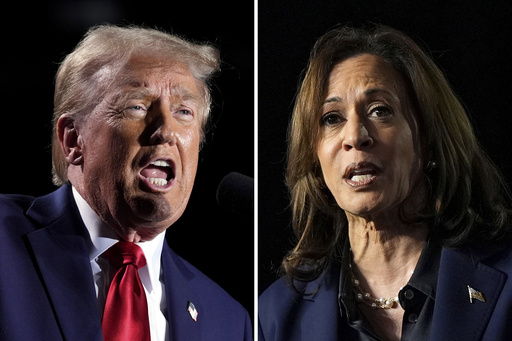
As Election Day approaches, both Kamala Harris and Donald Trump are strategically reaching out to key voter bases, leveraging the influence of well-known personalities to bolster their campaigns.
In recent developments, British Prime Minister Keir Starmer firmly dismissed allegations made by Trump’s campaign that his Labour Party is unlawfully meddling in the U.S. presidential election. On Tuesday evening, Trump’s campaign announced via his official website that a formal complaint had been submitted to the Federal Election Commission, claiming the Labour Party and the Harris-Walz campaign were engaged in “illegal foreign campaign contributions and interference in our elections.” This complaint stems from media reports discussing interactions between Labour and Democratic Party representatives, alongside a now-removed LinkedIn post by a Labour staff member that mentioned nearly 100 past and present Labour staffers traveling to the United States in the coming weeks to engage in activities in critical swing states.
In response, Starmer clarified that any members of the Labour Party present in the U.S. were there solely in a voluntary capacity. While en route to Samoa for a Commonwealth leaders’ gathering, he emphasized, “This is what they’ve done in past elections and what they continue to do in this election.” Starmer assured that this controversy would not undermine the rapport he has attempted to cultivate with Trump. “I made a point to spend time in New York with President Trump, sharing a meal with him. My intention was to foster a positive relationship between us, which we achieved, and I appreciate the time he set aside for our meeting,” he noted to reporters.
Through these statements and actions, both candidates are actively preparing for the rapidly approaching election, with international dynamics and relationships playing a significant role in their respective campaigns. As more developments unfold, the political landscape continues to evolve, making it crucial for the candidates to maintain clear and effective communication with their constituents.
